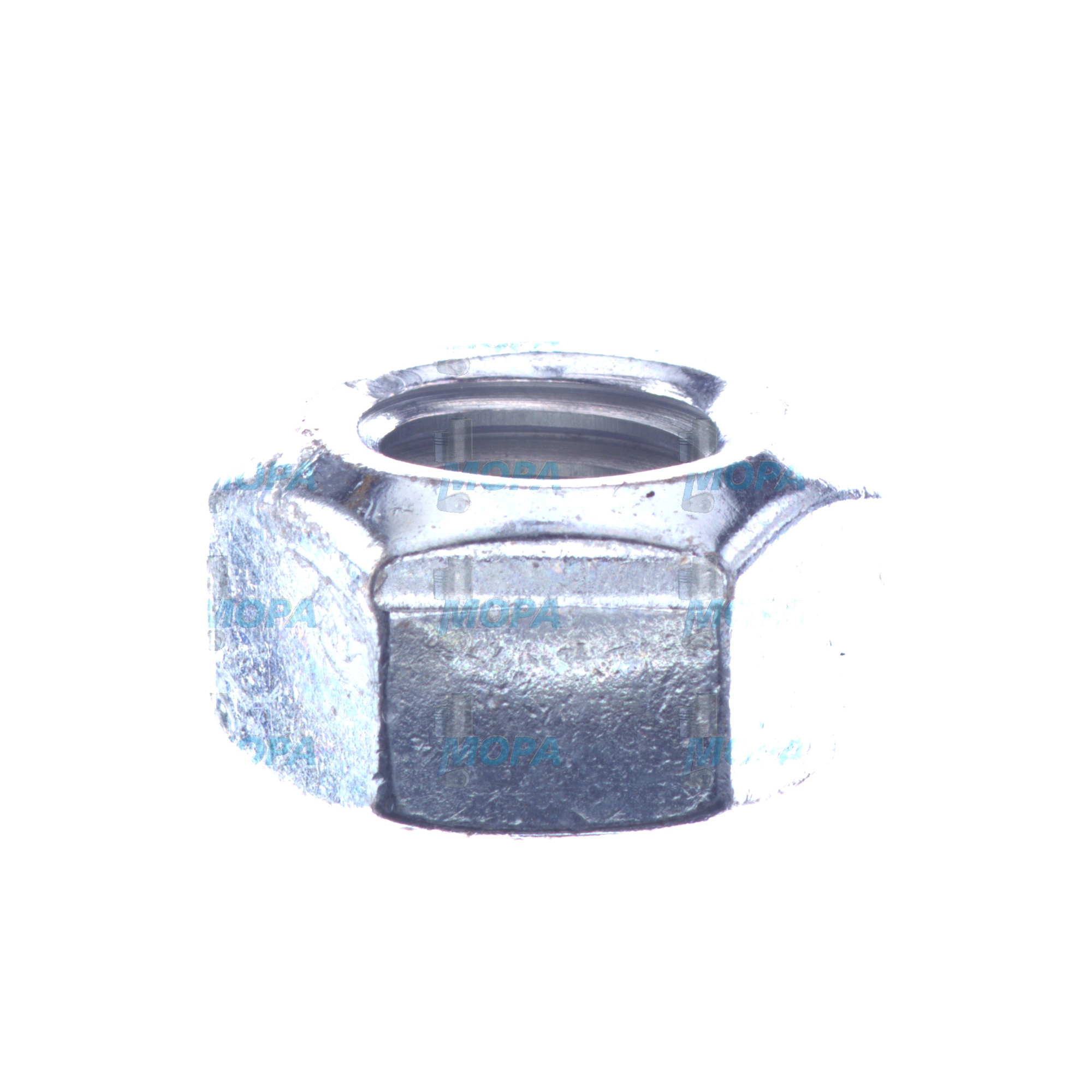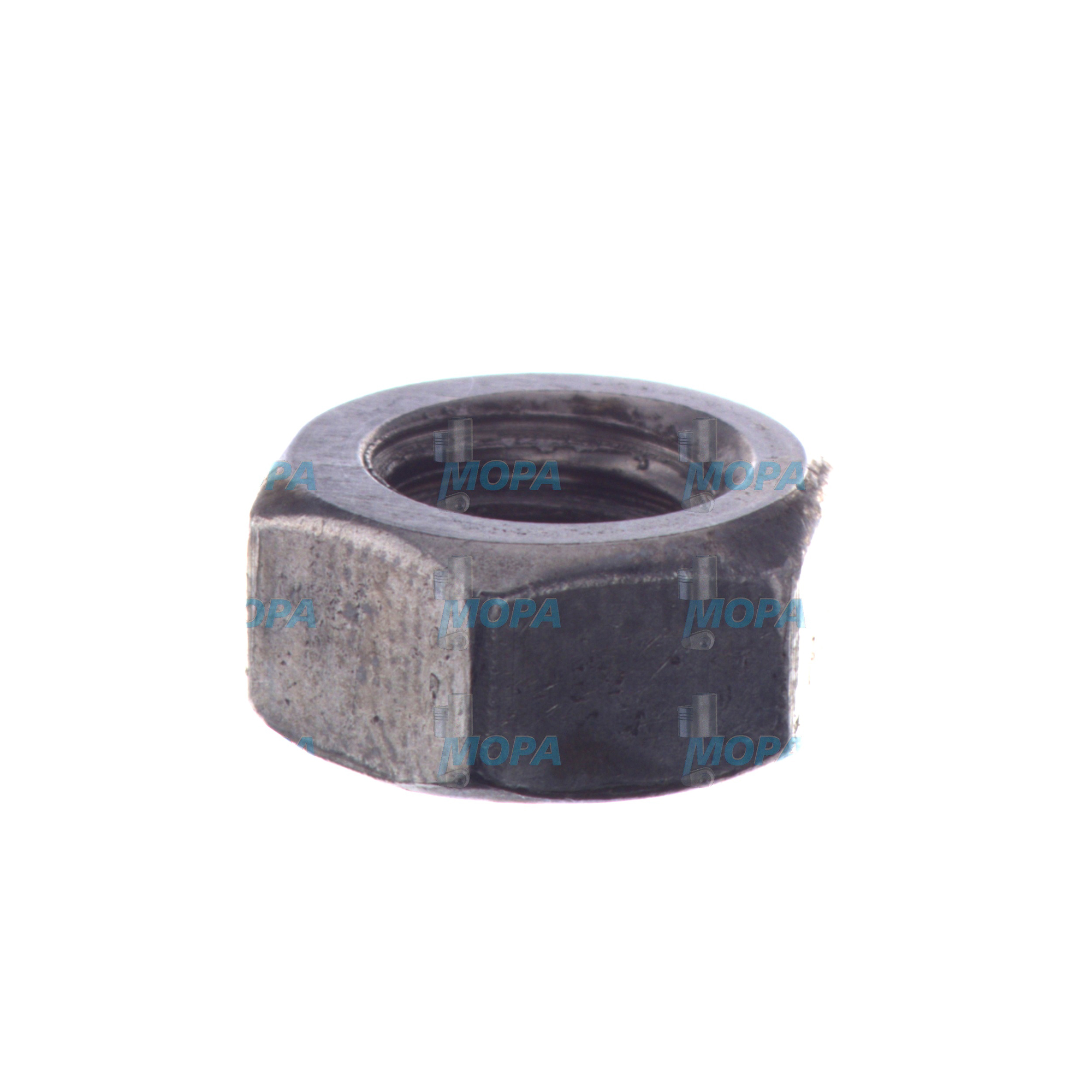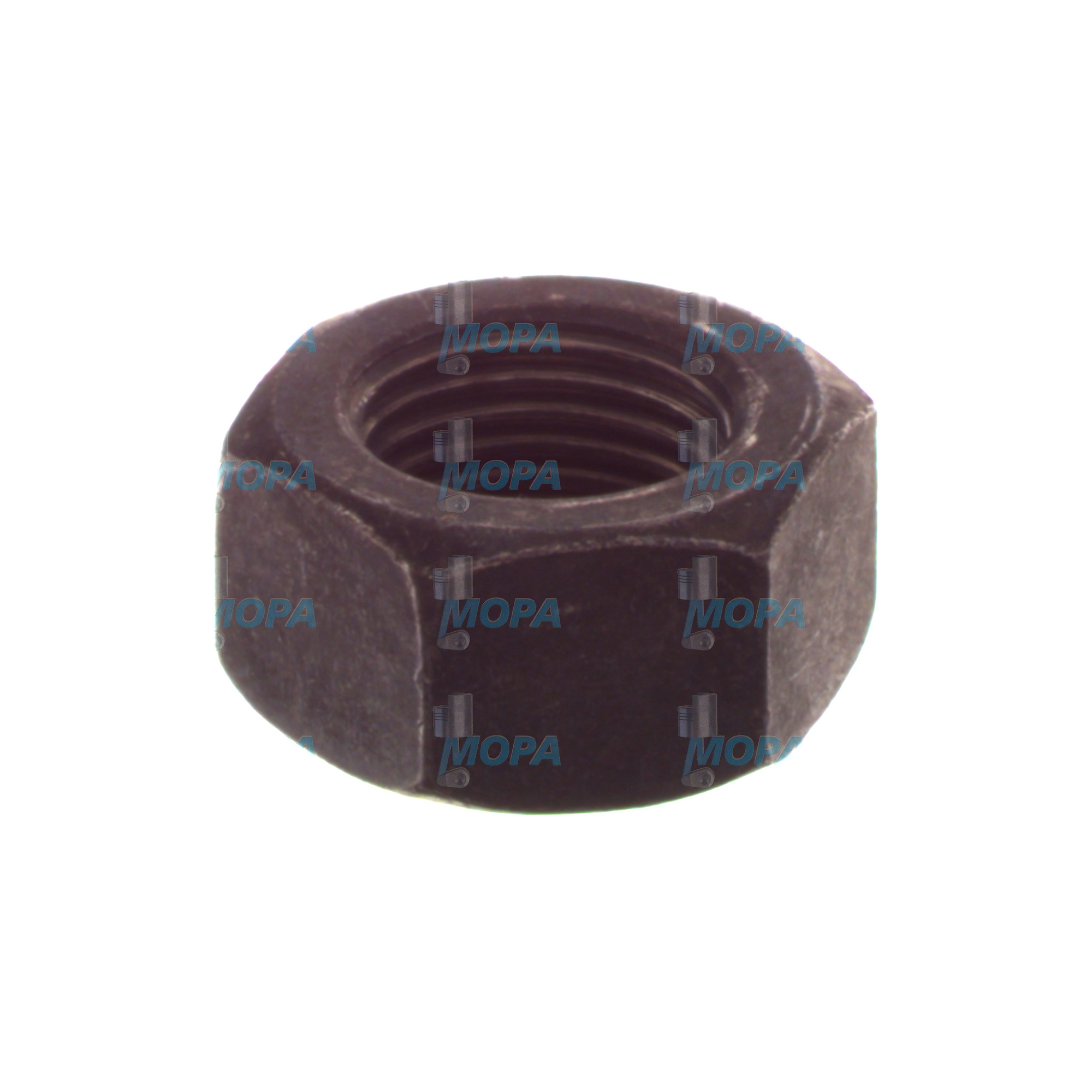HEXAGON NUT Nuts for high-load marine, diesel, and gas engines
Nuts are critical fastening components used throughout engines to clamp parts together with defined preload. In heavy-duty diesel and gas engines—on vessels, gensets, and industrial power units—they secure cylinder head studs, exhaust manifolds, turbocharger brackets, coupling flanges, covers, and baseframe connections. A properly specified HEXAGON NUT creates the clamping force that keeps joints sealed, aligned, and stable under vibration and thermal cycling. Without reliable nuts, even the best bolts, studs, and gaskets cannot deliver consistent performance or uptime.
Technical function of Nuts: how a HEXAGON NUT stabilizes engine assemblies
A nut’s primary job is to convert applied torque into controlled clamp load. When a HEXAGON NUT is tightened on a stud or bolt in a marine engine or diesel engine, friction at the threads and under the nut face translates rotation into tensile preload in the fastener. That preload is what resists joint separation, micro-movement, and gasket blow-by when the engine experiences pressure pulsations, dynamic forces, and temperature gradients.
Modern engine joints rely on predictable torque-to-tension behavior. Material class, thread tolerance, and surface finish of the nut determine the friction coefficient and the repeatability of the achieved preload. In hot zones—turbocharger outlets, exhaust elbows, or EGR connections—nuts must retain strength at elevated temperatures and resist relaxation. In wet or saline environments aboard ships, corrosion resistance is equally important to prevent thread seizure, loss of cross-section, and impaired re-tightening. For these reasons, HEXAGON NUT OEM parts are engineered with precise geometry, heat treatment, and coatings suitable for the duty cycle of each application.
Different nut designs are employed across engines: standard hex (often to ISO or ASME dimensions) for general joints; heavy-hex for higher bearing area and clamp load; thin jam nuts for lock-joint arrangements; and all-metal prevailing torque nuts for vibration resistance near reciprocating machinery. Where temperatures are high, all-metal locking solutions are preferred over polymer inserts. Flange nuts can distribute load and reduce embedment, improving preload retention on softer mating surfaces.
- · High-strength property classes tailored to engine loads
- · Metric and imperial threads for global engine fleets
- · All-metal locking options for high-temperature zones
- · Corrosion-resistant coatings for marine environments
- · Tight thread tolerances for consistent clamp load
- · Stable friction characteristics to support torque specs
- · Heat-treated alloys for creep and relaxation resistance
- · Dimensional conformity to ISO/ASME for fit and interchangeability
HEXAGON NUT in marine engine and diesel engine service
In a marine engine, HEXAGON NUT fasteners maintain sealing pressure at cylinder heads, jacket-water covers, charge-air pipelines, and fuel system brackets. On diesel engine baseframes and resilient mountings, nuts preserve alignment, limiting shaft vibration and bearing wear. Exhaust manifold and turbocharger joints rely on nuts that resist thermal cycling, preventing leaks that could raise EGTs or compromise SCR and aftertreatment performance. Across these use cases, the nut’s geometry, hardness, and surface treatment directly influence safety, efficiency, and emissions compliance.
Importance of Nuts for engine reliability and service life
Engine reliability depends on joints that stay tight across thousands of operating hours. If nuts are underspecified, worn, or corroded, clamp load decays and the joint can slip or leak. Consequences include gasket failure, coolant or lube oil loss, exhaust gas leakage, elevated vibration, fretting of mating faces, and accelerated fatigue in studs and bolts. Rounded hexes or damaged threads complicate maintenance, increase turnaround time, and raise the risk of uneven torque application during reassembly.
Common failure modes—galling, thread stripping, hydrogen embrittlement in coated parts, thermal relaxation, and loss of prevailing torque—are mitigated by choosing the correct nut material class, coating system, and locking feature for the specific engine zone. Routine inspections should check for discolouration from overheating, corrosion products, and loss of locking resistance. When in doubt, replace nuts as a set to maintain even load sharing on multi-fastener flanges.
Advantages of OEM spare parts suitable for Nuts
For critical engine joints, OEM spare parts suitable for Nuts provide the dimensional accuracy, controlled metallurgy, and verified surface treatments that convert specified torque into the intended preload. This delivers stable performance, protects gaskets and machined faces, and minimizes unplanned rework during overhauls. The result is higher reliability and longer service life at a competitive total cost.
Procurement and maintenance teams benefit from consistent friction coefficients and thread tolerances, enabling repeatable tightening procedures (including torque-angle strategies). Traceable production and batch testing support compliance with class society rules in marine applications. Correct fit with mating studs and bolts reduces cross-threading, prevents nut “bottoming,” and ensures the full thread engagement required to carry dynamic loads.
From a budget perspective, selecting OEM spare parts suitable for Nuts reduces downtime, avoids premature gasket replacements, and limits secondary damage from leaks or misalignment. Over the engine lifecycle, fewer repairs and shorter service windows translate into measurable cost savings and higher availability.
HEXAGON NUT OEM parts: what makes the difference
HEXAGON NUT OEM parts are produced to defined property classes, verified hardness and toughness, and with coatings proven for engine environments. Expect reliable prevailing torque where specified, clean threads that resist galling, and underhead surfaces that maintain stable friction—small details that have a big impact on clamp load and joint integrity.
MOPA as a partner for OEM spare parts Nuts
MOPA is an experienced and reliable partner for OEM spare parts suitable for Nuts. We source and deliver HEXAGON NUT solutions for diesel and gas engines with a focus on speed, quality, and security in the trade of OEM parts. Our team supports you with application-matched selections—standard hex, heavy-hex, or locking designs—along with material and coating options optimized for marine environments.
With fast order processing, technical guidance, and dependable logistics, MOPA helps shipowners, operators, and service providers keep engines running safely and efficiently. Whether you need single items or complete hardware kits for cylinder head studs, exhaust manifolds, or auxiliary systems, we provide precise, on-time supply aligned with maintenance schedules.
Conclusion: the role of HEXAGON NUT Nuts in engine performance
Nuts are indispensable for maintaining the preload that keeps engine joints sealed, aligned, and resistant to vibration and heat. Selecting OEM spare parts suitable for Nuts—especially the correct HEXAGON NUT for marine engine and diesel engine applications—enhances performance, reliability, and service life. With MOPA, you gain a trusted partner for fast, secure delivery of OEM parts that keep critical fastenings under control.








